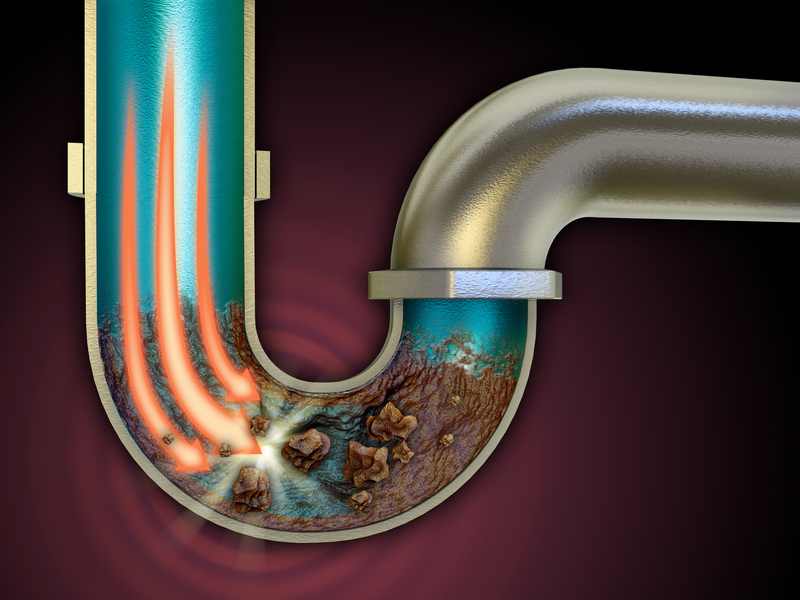The Impact of Cleaning on Mental Health
Posted on 09/10/2025
The Impact of Cleaning on Mental Health
Living in an environment that is clean and organized can have a profound impact on your mental health. From reducing stress and anxiety to promoting a sense of accomplishment and control, the simple act of cleaning and maintaining your living space can lead to a healthier and happier mind. In this article, we will delve into the various ways that cleaning affects mental health, backed by scientific research and psychological insights.
The Psychological Benefits of a Clean Environment
A clean and tidy environment is more than just aesthetically pleasing; it has several psychological benefits. Clinical studies have shown that cluttered spaces can lead to increased stress and anxiety. On the other hand, clean spaces encourage relaxation and psychological well-being. Here are some key psychological benefits:
- Reduced Stress Levels: The act of cleaning and the resultant clean environment can lead to lower levels of cortisol, the stress hormone.
- Enhanced Focus: A tidy space reduces distractions, allowing for better concentration and productivity.
- Improved Mood: A clean and organized space can trigger feelings of happiness and satisfaction, positively affecting overall mood.

The Connection Between Cleaning and Reduced Anxiety
Anxiety is a prevalent mental health issue affecting millions worldwide. While there are many approaches to managing anxiety, cleaning is a simple, yet effective, method that can be incorporated into daily life. Here's how:
- Sense of Control: Anxiety often stems from a feeling of losing control. Cleaning allows individuals to take charge of their immediate environment, providing a sense of control and reducing anxiety levels.
- Mindfulness: Cleaning tasks, such as washing dishes or vacuuming, can be meditative. These activities require focus on the present moment, reducing anxious thoughts about the past or future.
- Routine and Structure: Establishing a cleaning routine can provide structure to your day, making it easier to manage anxiety symptoms through predictable activities.
Cleaning as a Form of Physical Exercise
Physical activity is a well-known contributor to mental health, and cleaning can be considered a form of exercise. Tasks such as mopping, scrubbing, or decluttering burn calories and engage multiple muscle groups. Physical exercise releases endorphins, known as "feel-good" hormones, which can significantly improve mood and reduce feelings of depression.
- Endorphin Release: Physical activities associated with cleaning release endorphins, improving overall mental well-being.
- Stress Relief: The physical exertion involved in cleaning can act as a release valve for built-up stress.
- Improved Sleep: Physical tiredness from cleaning can lead to better quality sleep, which is crucial for mental health.
Cleaning and Its Impact on Self-Esteem
A clean and organized living space can significantly impact self-esteem and self-worth. When you invest time and effort into maintaining your environment, it reflects a level of self-care and respect for oneself. This positive self-regard can improve self-esteem and lead to better overall mental health.
- Sense of Achievement: Completing cleaning tasks can provide a sense of accomplishment, boosting self-esteem.
- Personal Growth: Maintaining a clean environment requires discipline and commitment, skills that contribute to personal growth.
- Positive Self-Image: A clean space often translates to a better self-image, enhancing self-esteem and confidence.
Breaking Down the Tasks: Small Steps for Big Results
The thought of cleaning an entire living space can be overwhelming, especially for those struggling with mental health issues. Breaking down cleaning tasks into smaller, manageable steps can be less intimidating and more achievable.
- Start Small: Focus on one area at a time, such as a single shelf or drawer, to make the task more manageable.
- Set Timers: Use a timer to clean for short, focused intervals (e.g., 15 minutes) to prevent feeling overwhelmed.
- Celebrate Small Wins: Take a moment to appreciate the progress you've made, no matter how small, to build motivation and momentum.

Involving Others: The Social Aspect of Cleaning
Cleaning doesn't have to be a solitary activity. Involving family members, friends, or even roommates can add a social dimension to the task, making it more enjoyable and less burdensome.
- Family Bonding: Cleaning together can strengthen family bonds and teach children the value of maintaining a clean environment.
- Social Support: Completing tasks with friends or roommates can offer social support, making the activity more enjoyable and less stressful.
- Shared Responsibility: Distributing cleaning tasks among household members ensures that no one person feels overwhelmed, promoting a sense of teamwork and cooperation.
Conclusion: The Holistic Approach to Mental Health
The impact of cleaning on mental health is multifaceted, involving psychological, physical, and social benefits. While it may seem like a mundane chore, cleaning offers a practical, accessible way to improve mental well-being. By maintaining a clean and organized environment, you can reduce stress, alleviate anxiety, enhance focus, and boost self-esteem.
It's important to remember that cleaning is not a cure-all but can serve as a valuable tool in a broader strategy for mental health. Combining regular cleaning with other healthy habits, such as exercise, proper nutrition, and mindfulness practices, can lead to a more holistic approach to mental well-being. So, the next time you find yourself feeling overwhelmed or stressed, consider picking up a broom or organizing a cluttered shelf. Your mind will thank you for it.
Latest Posts
Expert Tips for Hassle-Free Bathroom Cleaning
A Gleaming Finish: Tried and True Methods for Banishing Grease from Your Oven
Changing Sheets Best Practices






